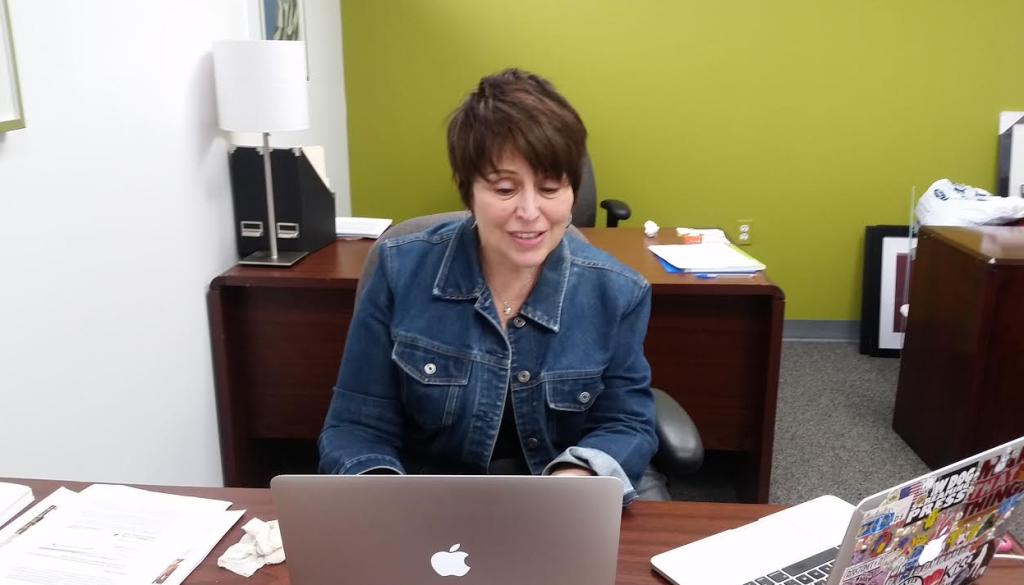Many adults with autism find it hard to make and keep friends. Although some adults with autism may not feel a strong need to establish many social relationships, others want to be able to engage and form meaningful connections with their peers.
Social anxiety is reported in 22% of adults with autism, and many of these individuals are finding solace on social media platforms such as Facebook and Twitter. Without the need for face-to-face interaction, social media sites can provide a comfortable means of interpersonal communication. Parents of adults on the spectrum may also find much-needed support in online groups as they provide a forum to communicate with others dealing with similar feelings, experiences, and challenges. However, in light of all its benefits, where does social media fail to measure up?
In a 2013 study, researcher Micah O. Mazurek found that the majority of adults with autism use social media to meet friends. Not surprisingly, the subjects who reported using social media to form relationships also reported having more close friendships than those who do not use the Internet. So, these social media savvy adults obviously experienced less loneliness too, right? Well, not exactly. The results of this study actually demonstrated that social media use had nothing to do with loneliness at all. In fact, face-to-face interaction was found to be the best predictor of loneliness. This means that while using social media was shown to help an individual find more friends, an individual must also engage in face-to-face interaction in order to decrease feelings of loneliness.
In addition to formal research, personal anecdotes may also produce valuable insights. Donna Jacks is a woman with Asperger’s Syndrome and founder and creator of Aspie Health, an organization that promotes alternative health and wellness advice geared towards adolescents and adults with autism spectrum disorders. In one of her videos, she intimated that “it wasn’t until [she] became super-duper isolated and realized that [social media] was the only means of [her] having some interaction” that she began using it to connect with her peers. However, she did note that the relationships that mean the most to her are those she has with people outside of social media. In another video, Mark Mehlbauer said that social media can be beneficial to those who may need help navigating social interactions. Social media can also negate social faux pas that may happen to adults on the spectrum because it allows these individuals to plan out what they are going to say before a social situation arises. He also noted that the best social media platform may vary from individual to individual. For instance, while Facebook allows Mehlbauer the ability to connect with a wide array of people, he is wary, at times, because strangers also have the means to access him, no matter their intent. He also notes that he does not appreciate some sites, such as Facebook, because people do not have to be “politically correct” and this can cause a great deal of harm to others. He is informed about the risks of using social media, but, in his opinion, the benefits outweigh the pitfalls.
Social media has not only been shown to benefit adults with autism, but their families as well. Parents of children with autism often report experiencing a great deal of stress, and this stress can affect every aspect of their lives. It is imperative that these families have effective coping mechanisms available. In 2010, Leann Smith and her team investigated how the stress felt by mothers of children with autism affected the function of the family. They asked 96 mothers of adolescent and adults with autism to complete an 8-day diary study about their daily experiences in order to assess the need for family support services. Mothers of children with autism reported more negative feelings and less positive emotions than mothers of children without autism. They found that families of adults and adolescents with autism experience more arguments and greater levels of overall stress than mothers of children with other developmental disabilities. Considering services end at age 21, many families in the autism community are struggling to find helpful avenues of support. The Internet and social media can give much-needed respite for loved ones while also providing a clearer picture of the challenges their autistic family member may be encountering. Internet communities, such as Facebook groups, can serve as support networks and safe havens for these moms and dads to feel “normal.”
Smith’s study also found that mothers of children with autism may find it beneficial to talk to a variety of people outside of their everyday social circles. Interestingly, they found that constant emotional support from the same individuals does not result in more positive emotions for mothers of adults with autism. Smith hypothesized that mothers of children with ASD may be used to receiving emotional support from the same person and are therefore desensitized by it. Thus, mothers of children with autism may find it beneficial to talk to a variety of people and may even find it helpful to interact with mothers of neurotypical children online. Having conversations with an array of individuals from all walks of life may de-emphasize autism-related parental stress and redirect it elsewhere.
In 2014, Jennifer Reinke and Catherine Solheim performed a study to investigate how parents, particularly mothers, use the Internet for social support. The parents were asked about their experiences finding and receiving social support on social media. Reinke and Solheim found that the majority of parents felt that using social media made them feel better understood. They also felt as though the Internet gave them more opportunities to participate in the autism community. This study furthers the idea that maintaining an online presence can be beneficial to parents. It allows parents to share stories, obtain information and resources, talk to other parents who are encountering similar situations, and creates a sense of community.
Lisa Holland a staffer at Madison House Autism Foundation says that, when her adult son with autism was a child, it was very difficult for her to form relationships with other mothers because of some of the behaviors associated with autism. She described being “the only mother in the class whose son was not invited to another child’s birthday party.” She felt that “no one wanted her around, and it was very isolating.” She turned to the Internet, especially forums for moms and parenting sites, to make connections with other parents who might be in similar situations. Lisa said that these sites were helpful to her because “there were some days when [she] wouldn’t have any grown-up interactions or that support.” Now, she uses the Internet to form and maintain relationships with other mothers, particularly those who have a child on the autism spectrum or another disability. According to Lisa, it allows her to “feel connected and is a great source of comfort.”

Social media can be a very powerful tool for adults with autism and their parents, but it isn’t the be-all and end-all solution to feelings of social isolation. Virtual communities can help adults with autism form relationships with their peers by allowing them to communicate more fluidly in the absence of face-to-face interactions. As Donna from AspieHealth mentions in her video, she felt “very isolated” from her community before social media, which has now provided a way for her to interact with others. As the current research indicates, social media may also be helpful for parents of adult children with autism as it allows them to vent, share information, and feel “normal.”
It is important to understand that social media and the Internet are not a one-size-fits-all solution for all adults with autism and their families. Donna says that she does not necessarily like that she has to rely on social media to form relationships with peers and that not all forms of social media work for her. Both Donna and Lisa say that face-to-face interactions are ideal, but certain factors, like anxiety, prevent these encounters from happening very easily. Lisa asserts that “if the Internet works for someone and allows them to interact with others, then there’s nothing wrong with it.” As the research stands now, it seems that social media is a helpful and mostly positive outlet for some adults with autism and their families to form more relationships, build a sense of community, and feel more connected.
About the Author
 Sydney Roulhac
Sydney Roulhac
Originally from Fayetteville, North Carolina, Sydney is a psychology student at University of Maryland, Baltimore County. As Research Intern at Madison House Autism Foundation, Sydney hopes to further her goal of working with children on the autism spectrum as a clinical child psychologist while understanding the lifelong issues impacting individuals with autism as they age. In her free time, Sydney likes to read and hang out with her friends.
Top image: Creative Commons


 Photographer Captures 22-Year-Old with Autism Coping with Parent’s Illness
Photographer Captures 22-Year-Old with Autism Coping with Parent’s Illness



21 year old autistic daughter she works at the Yvonne Richardson center she chooses to live with her mother and me so I built to tiny homes so we can have a new place I’m struggling with the payments and a vehicle trying to finish I work one job during the day being cattle of a night every day 365 days a yeardon’t have any spare money barely anything to eat but I keep on going